The 33rd
LaureateSculpture
Ai Weiwei
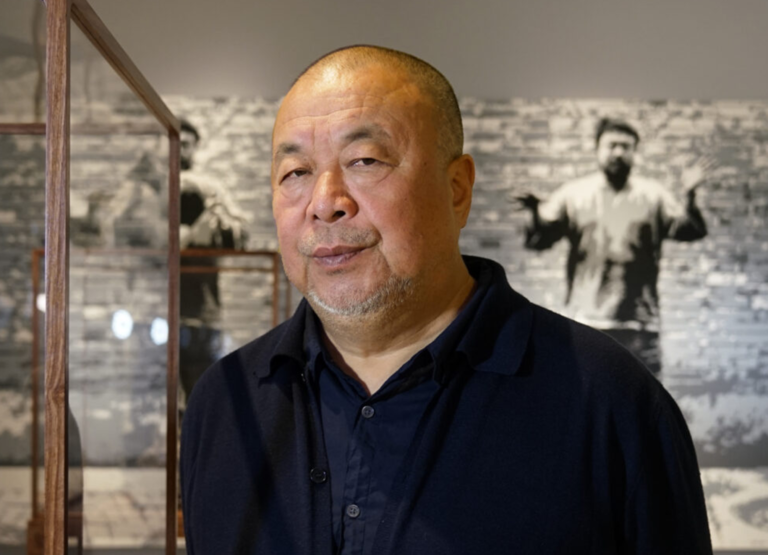
The Chinese artist,activist and filmmaker,Ai Weiwei is one of the most influential cultural figures working today. A truly global artist,his work encompasses everything from the Syrian refugee crisis to the destruction of the Brazilian rainforest. But it is China – its past,present and future – that is the primary focus for much of Ai’s work,a focus that led to his imprisonment and exile. The son of renowned poet Ai Qing,his early years were marked by hardship,as his father had been denounced by the Communist government. In 1981 Ai went to live and study in the United States and returned to China in 1993. After the Sichuan Earthquake of 2008,he and his team gathered the names of more that 5,000 children who had died as a result of shoddily built schools and published them on his blog. These activities culminated in his secret detention for 81 days in 2011 without any formal charges. It was an experience that Ai turned into a powerful series of art works and eventually led him to leave China in 2015. Now based in Europe,through his extraordinary art and determined activism,Ai Weiwei remains one of the world’s most prominent advocates for free expression and human rights – a testament to the potential for art to re-imagine the world in which we live.
Biography
“Often people ask me,you know,what Art is for or if Art can change our life? I think Art is part of life. And Art certainly changes my life.” Multi-discipline artist,Ai Weiwei has,over the years,created Art that has not only changed the course of his life,but it has also challenged perceptions and touched the lives of countless others. His art reflects his profoundly intense,anti-authoritarian philosophy and raises questions about reality,values and humanity.
Ai’s parents were both poets but his father,Ai Qing,was denounced as a rightist,meaning that from 1958 to 1975 Ai’s family lived in exile. These early experiences of injustice had an enormous impact on Ai’s work,“I learned from my parents more about how to be an artist or a poet,to maintain this kind of innocent way to look at the world. To use very clear moral judgement about right or wrong and also to appreciate life.”
The family was allowed back to Beijing in 1975 and in 1978,he entered the Beijing Film Academy. In 1981 he moved to the USA where he lived for 12 years and where he started to create artworks,often reflecting the political issues of the day.
He returned to China in 1993. Major works from this period,Dropping a Han Dynasty urn (1995) and the series Study of Perspective (1995-) reveal a fully matured international artist; questioning and challenging the establishment’s view. At the same time Ai also wanted to nurture other young Chinese artists and he provided them with a showcase by holding events such as the FUCK OFF exhibition of 2000 in Shanghai.
After the Sichuan Earthquake of 2008,the Chinese government did not disclose the resulting large number of deaths. Angered by this,Ai and his team worked tirelessly to gather the names of more than 5,000 children who had died as a result of shoddily built schools and published them on his blog. They also collected debris,twisted rebars from those schools,that were later used in major works,Straight (2008-12) and Forge (2008-12). These activities led to Ai being subjected to secret detention in 2011 and constant surveillance,finally leading to his relocation to Europe in 2015.
The privations experienced during his arrest and detention are clearly revealed in a series of six powerful dioramas,S.A.C.R.E.D. (2013) but his captors are also mocked in a short video,Dumbass (2013) - a gloriously defiant piece of work.
Ai’s own experiences mean that the plight of prisoners of conscience and refugees have always been close to his heart. While still living under constant surveillance in China,he made @Large (2014),a major series of site-specific installations on Alcatraz Island exploring human rights. His documentary,Human Flow (2017),covered life in 40 refugee camps in 23 countries and Cockroach (2020),focused on the pro-democracy protests in Hong Kong. Now living in Europe,Ai Weiwei remains one of the world’s most prominent advocates for free expression and human rights. “If we believe in what should be done,we should act. I am certainly dangerous for the people who are so corrupted.”
Chronology
Built the studio in Caochangdi,Beijing
Chinese Contemporary Art Awards (CCAA)
Mock up,Beijing,with Herzog & de Meuron,at the 11th Venice Architecture Biennale
Ai Weiwei. So Sorry,Haus der Kunst,Munich
Ai Weiwei: Sunflower Seeds,Unilever Series,Turbine Hall,Tate Modern,London
Accepted visiting professorship at the Berlin University of the Arts
Co-Artistic Directors of the 4th Gwangju Design Biennale,Korea
Membership at the Academy of Arts,Berlin
Honorary Academician at the Royal Academy of Arts,London
Václav Havel Prize for Creative Dissent
Ambassador of Conscience Award,Amnesty International
Evidence,Martin-Gropius Bau,Berlin
Ai Weiwei,Royal Academy of Arts,London
Ai Weiwei: Good Fences Make Good Neighbors,Public Art Fund,New York
Trace,Hirschhorn Museum,Washington,D.C.
History of Bombs,Imperial War Museum,London
Documentary: Rohingya
Ai Weiwei: The Liberty of Doubt,Kettle’s Yard,Cambridge
The new production of Turandot premiered at the Teatro dell’Opera di Roma (direction,sets,costumes,videos by Ai Weiwei)
-
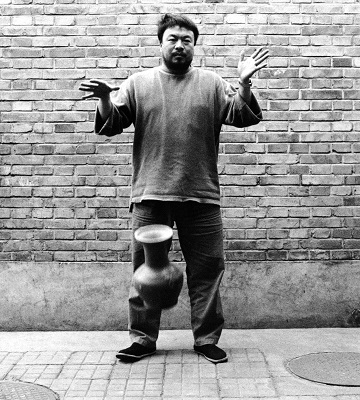
Dropping a Han Dynasty Urn, 1995
-
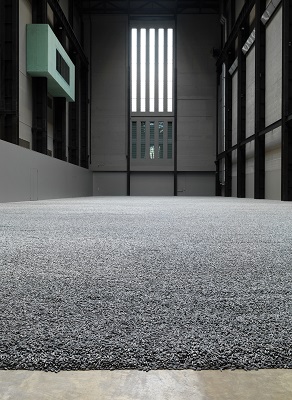
Sunflower Seeds, 2010
-
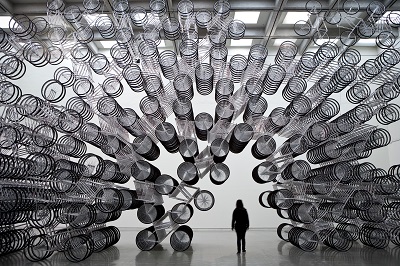
Forever Bicycles, 2011
-
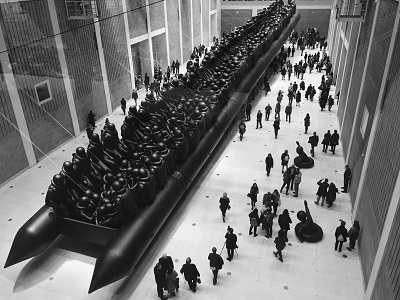
Law of the Journey, 2017
-
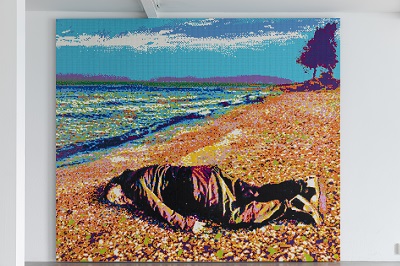
After the Death of Marat, 2018

